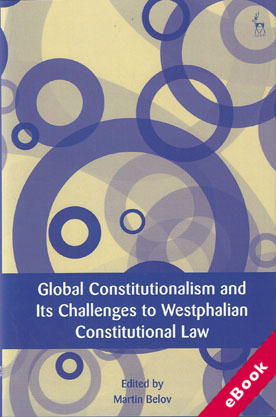
The device(s) you use to access the eBook content must be authorized with an Adobe ID before you download the product otherwise it will fail to register correctly.
For further information see https://www.wildy.com/ebook-formats
Once the order is confirmed an automated e-mail will be sent to you to allow you to download the eBook.
All eBooks are supplied firm sale and cannot be returned. If you believe there is a fault with your eBook then contact us on ebooks@wildy.com and we will help in resolving the issue. This does not affect your statutory rights.
Westphalian constitutionalism has shaped our understanding of politics, socio-political institutions and personal and political freedom for centuries.
It is historically based in the foundations of Western modernity, such as humanism and rationalism, and is organized around familiar principles of national sovereignty, the rule of law, the separation of powers and democracy. But since the end of the 20th century global constitutionalism has gradually emerged, challenging both the constitutional ideology and the constitutional design of Westphalian constitutional law.
This book critically assesses the structural and functional transformations in the Westphalian constitutional tradition produced by the emergence of supranational and global constitutionalism. In so doing, it evaluates the theory of global constitutionalism, its legal and socio-political limits, and important issues concerning the supranational constitutionalism of the EU.
This leads to an articulation of the constitutional theory of the emerging post-Westphalian constitutionalism, examining its development during a period of significantly increased access to and sharing of information, increased mobility and more open statehood, as well as the rise of human rights and its encounter with populism and nationalism.
It will be of great interest to scholars of constitutional law and theory, particularly those with an interest in globalization and supranationalism.